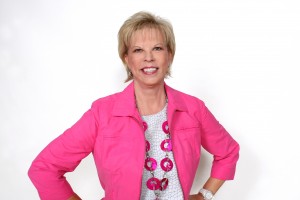 In 1988, I had the privilege to work with the leadership of the National Association of Women Business Owners (NAWBO) on an important piece of legislation known as HR 5050 – Women Business Ownership Act. In fact, I was present when President Reagan signed HR 5050 into law – what a thrill it was!
In 1988, I had the privilege to work with the leadership of the National Association of Women Business Owners (NAWBO) on an important piece of legislation known as HR 5050 – Women Business Ownership Act. In fact, I was present when President Reagan signed HR 5050 into law – what a thrill it was!
This legislation provided many positive changes for women business owners including a woman’s ability to get a loan from a bank on her own and the creation of the now almost 100 Women’s Business Centers across America.
HR 5050 means I don’t have to get a man to go to the
bank with me to get a loan!
I was honored and privileged to have worked on this legislation with incredible NAWBO leaders and mentors, Gillian Rudd and Virginia Littlejohn. But, signing the law was only the beginning – now came the challenge of getting the law implemented and funded. You see, some legislators weren’t really interested in funding this legislation because they didn’t see the necessity of spending money on Women’s Business Centers or in funding an SBA Office of Women’s Business Ownership. The fight continued.
In 2001, 13 years after the passage of HR 5050, I was still struggling with Washington to get many components of HR 5050 funded or continued funding for other components. NAWBO leadership knew women were growing businesses exponentially, but few were talking about it. NAWBO demanded the SBA go back and retrace what women were doing and discovered that women were starting and growing businesses 2 times faster than men. This is incredible information as it set the stage for women to be recognized as a vibrant and vital part of the economy.
While NAWBO was a strong voice for women business owners, it didn’t match the larger organizations that lobbied for legislation. I knew there had to be a stronger voice for women business owners if we were to be taken seriously. I co-founded Women Impacting Public Policy (WIPP), a coalition of women business organizations, for the sole purpose of advocating for legislation important to the women’s business community. Now, when WIPP talks to a member of Congress, they know there is the power of 67 women’s organizations behind a particular piece of legislation or opposing legislation detrimental to women business owners … and they pay attention.
At the Institute for Economic Empowerment of Women (IEEW), it’s all about business education and the power of your voice. Women in Afghanistan in particular are where we were in 1988 – unrecognized as a powerful economic engine. Rwandan women are much further along as they have the largest percentage of women in Parliament in the world! Through our efforts, our students are learning not only how to start and grow businesses, but they are also learning how to unify as one cohesive unit for the purpose of positive legislation for their businesses.
HR5050 set the path in the U.S. toward women being counted and much more; but it’s up to us to grow our voice and take the positive steps. I am honored to have played a small role in this historical event, and take very seriously my responsibility to help other women achieve their goal toward economic stability. I pledge to continue to Pay Forward the work started in 1988, and look toward 2020 as the year for economic equality. HR 5050 was just the beginning. Happy 24th Anniversary!!

